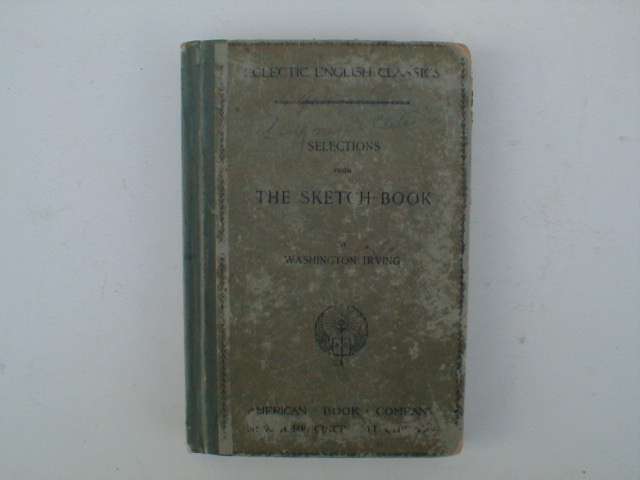|
Moderated by NW Okie! |
Volume 17 , Issue 392015Weekly eZine: (371 subscribers)Subscribe | Unsubscribe Using Desktop... |
The Sketch Book by Washington Irving

Washington Irving (1783-1859) was born in New York, the eleventh child of a prosperous merchant and Deacon of the Presbyterian Church. An indulged younger son and brother, Irving's formal education was desultory;although trained for the Bar, he never practiced as a lawyer. As a young man he dabbled in popular periodical literature, publishing a series of essays on the theatre and New York society as "The Letters of Jonathan Oldstyle, Gent.", and (following a two year Grand Tour of Europe) the Salmagundi papers with his brother William and friend James K. Paulding.
Irving's reputation as a writer was strengthened by the spoof A History of New York (1809), written under the pseudonym 'Diedrich Knickerbocker.' After a brief period as editor of the Analeptic Review, Irving again resolved to travel. A second tour of Europe was arrested in Britain when the family importing firm failed in 1816. Determined to make his own way in a literary career, Irving traveled around Britain collecting material for The Ketch-Book of Geoffrey Crayon, Gent. (1819-1820). His literary reputation secure with this new literary vice, Irving went on to publish Bracebridge Hall (1822) and Tales of a Traveler (1824).
An appointment to the American Legation in Madrid produced The Life and Voyages of Columbus (1828), The Conquest of Granada (1829), Voyages and Discoveries of the Companions of Columbus (1831), and The Alhambra (1832). In 1832 Irving returned to an enthusiastic welcome in the United States after an absence of seventeen years. He traveled west to experience life on the frontier, became unofficial adviser to Vice-President Van Buren on domestic and foreign affairs, and published Astoria (1836) at the instigation of his patron John Jacob Astor.
Irving finally settled at Sunnyside by the banks of the Hudson, devoting his last years to life with his nieces and nephew, further literary miscellanies, and a biography of George Washington, whose fifth volume he completed a few months before his death in November 1859.
| View or Add Comments (0 Comments)
| Receive
updates ( subscribers) |
Unsubscribe
| © . Linda Mcgill Wagner - began © 1999 Contact Me | |
